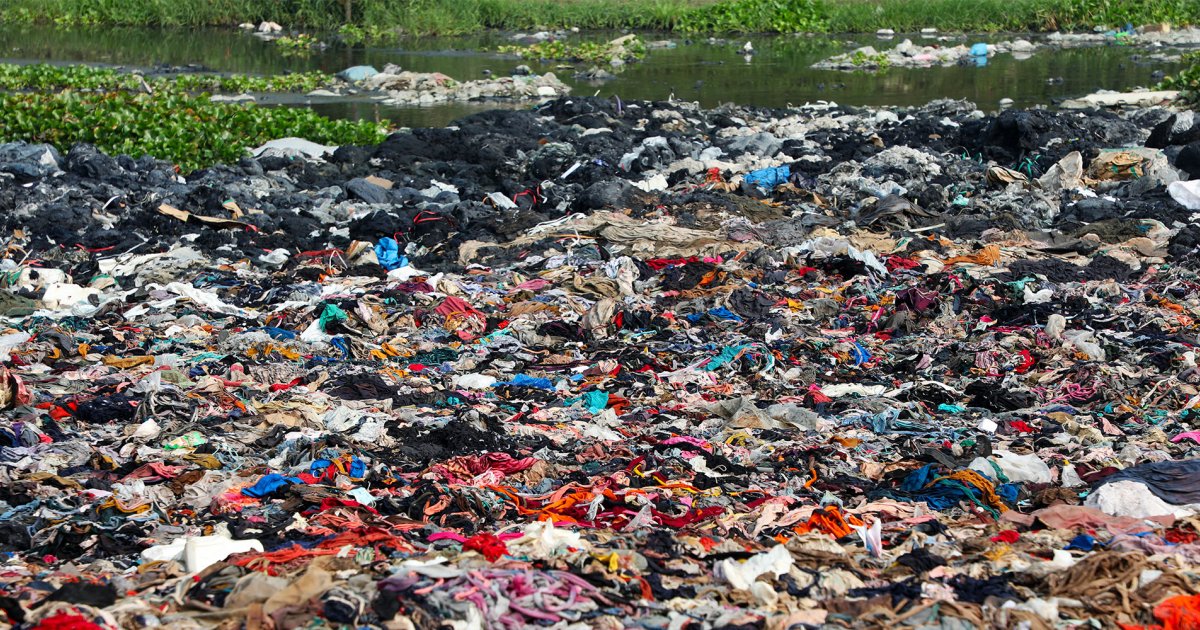Ultra-fast fashion has exploded in recent years, disrupting the fashion industry and threatening artisanal know-how. In this frantic race for mass production, quality, ethics, and the environment are often sacrificed in favor of low-cost clothing and accessories. At GISEL B , we believe in sustainable and responsible fashion, which values local craftsmanship and respect for precious materials.
In this article, we will decipher the dangers of ultra-fast fashion, identify its major players and explain why it is essential to support local crafts to preserve unique know-how and limit the ecological impact of fashion.
What is fast fashion and who are the players?
Fast fashion is a business model based on the rapid and inexpensive production of clothing and accessories, directly inspired by runway trends. This approach relies on constantly renewing collections, encouraging consumers to buy more and more, often at the expense of quality and production conditions.
With the emergence of ultra-fast fashion , the phenomenon has accelerated further. Brands like Shein, Boohoo, PrettyLittleThing, Fashion Nova , and others have taken this concept to the extreme. Thanks to algorithms and social media, these giants spot trends in real time and launch thousands of new models every day, often copied from other designers or luxury brands.
The result? Items sold at ridiculously low prices, manufactured under precarious working conditions, with poor-quality materials, and a catastrophic environmental impact.

Source: Oxfam France
The ecological ravages of fast fashion
The fashion industry is one of the most polluting in the world, and ultra-fast fashion is the worst example. Here are some alarming statistics:
-
10% of global CO2 emissions come from the textile industry, more than aviation and shipping combined.
-
93 billion cubic meters of water are used each year to produce clothing.
-
85% of textiles end up in landfill every year , often after only a few uses.
Ultra-fast fashion relies on synthetic materials like polyester, derived from petroleum, which release microplastics into the oceans with every wash. Furthermore, mass manufacturing in countries with weak environmental regulations leads to dramatic pollution of soil and rivers.
Conversely, brands like GISEL B favor high-quality, sustainable materials, such as recycled gold plating and cultured pearls. By focusing on artisanal and local production, we reduce our carbon footprint and offer jewelry that lasts.
 10 years since the Rana Plaza disaster, source France Inter
10 years since the Rana Plaza disaster, source France Inter
A human disaster: undignified working conditions
Behind the ridiculously low prices of fast fashion lie often inhumane working conditions.
-
The workers, mostly women and sometimes children, work 12 to 16 hours a day for a pittance.
-
Manufacturing facilities are often veritable sweatshops , with unsanitary and dangerous conditions, as sadly illustrated by the 2013 Rana Plaza collapse in Bangladesh, which killed more than 1,100 workers.
-
The lack of regulation encourages the exploitation of workers and practices such as no breaks, constant pressure and the impossibility of forming unions.
By supporting local craftsmanship, we promote decent working conditions, fair wages, and the valuable transmission of expertise. Each GISEL B piece of jewelry is crafted in France, in our workshop, with passion and high standards.
Why support local crafts and production?
Choosing artisanal brands is much more than just a purchase: it's a commitment to ethical and sustainable fashion.
-
Precious know-how : Craftsmanship is based on precise gestures, passed down from generation to generation. At GISEL B , we design jewelry with care, selecting exceptional materials such as our cultured pearls and our recycled gold.
-
Unique and durable creations : Unlike the disposable jewelry of ultra-fast fashion, our pieces are designed to last. A well-made piece of jewelry never goes out of style: it stands the test of time and becomes a true everyday companion.
-
A reduced ecological impact : By manufacturing locally and using noble and responsible materials, we limit our carbon footprint and promote an economy that is more respectful of the planet.
-
An authentic connection with the creators : Buying from an artisan also means creating a human connection. At GISEL B , we are close to our community and we listen to our customers to offer pieces that reflect them.

How to take action against ultra-fast fashion?
It's not always easy to resist the temptations of fast fashion, given its ubiquitous and accessible nature. But everyone can, at their own level, make more responsible choices:
-
Prioritize quality over quantity : Buy less, but better, with timeless and well-designed pieces.
-
Turn to committed brands : Look for artisanal labels and local designers who share ethical values.
-
Reduce your impulse consumption : Ask yourself questions about usefulness and durability before buying.
-
Recycle and give a second life to your jewelry and clothing : Encourage second-hand purchases, repairs and upcycling.

Conclusion: more responsible fashion is possible
Ultra-fast fashion endangers the environment, human rights, and local crafts. But there are alternatives, and everyone can contribute to positive change by supporting committed designers and prioritizing conscious purchases.
At GISEL B , we champion artisanal jewelry, made in France with high-quality, eco-friendly materials. Our creations are designed to last, to enhance every woman with elegance and awareness.
Choose respectful fashion and support craftsmanship before it's too late. 🌿✨
Our sources:
Le Monde, France Inter, France Info and Euronews.


